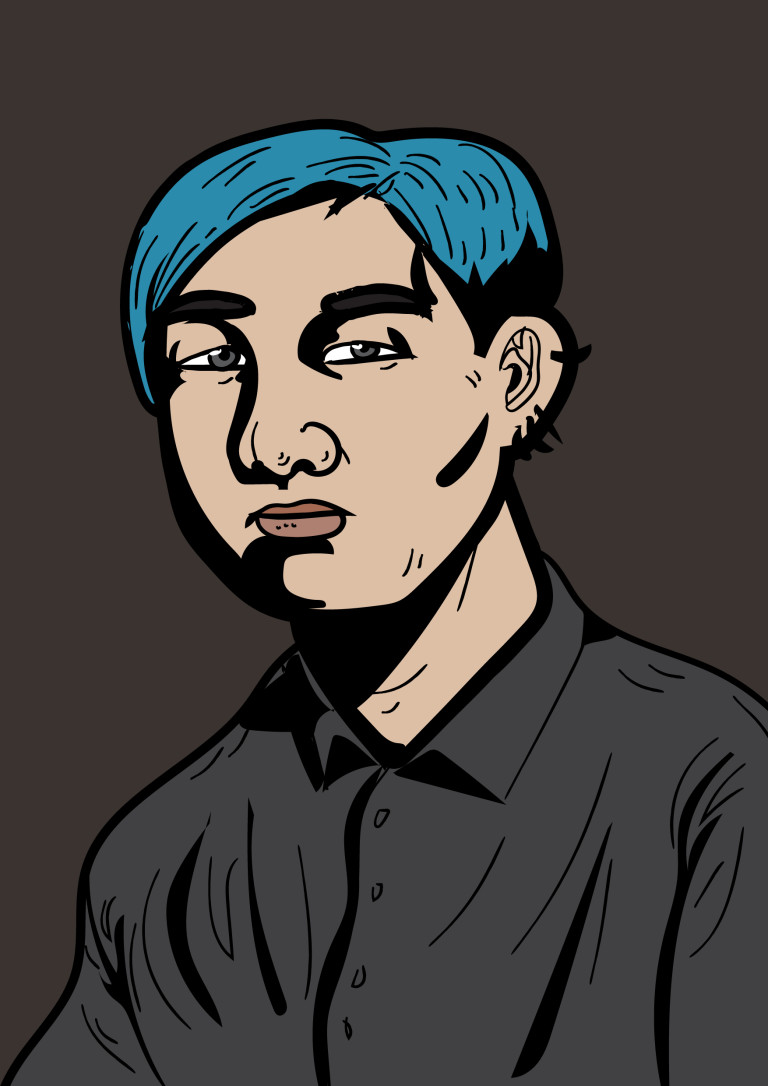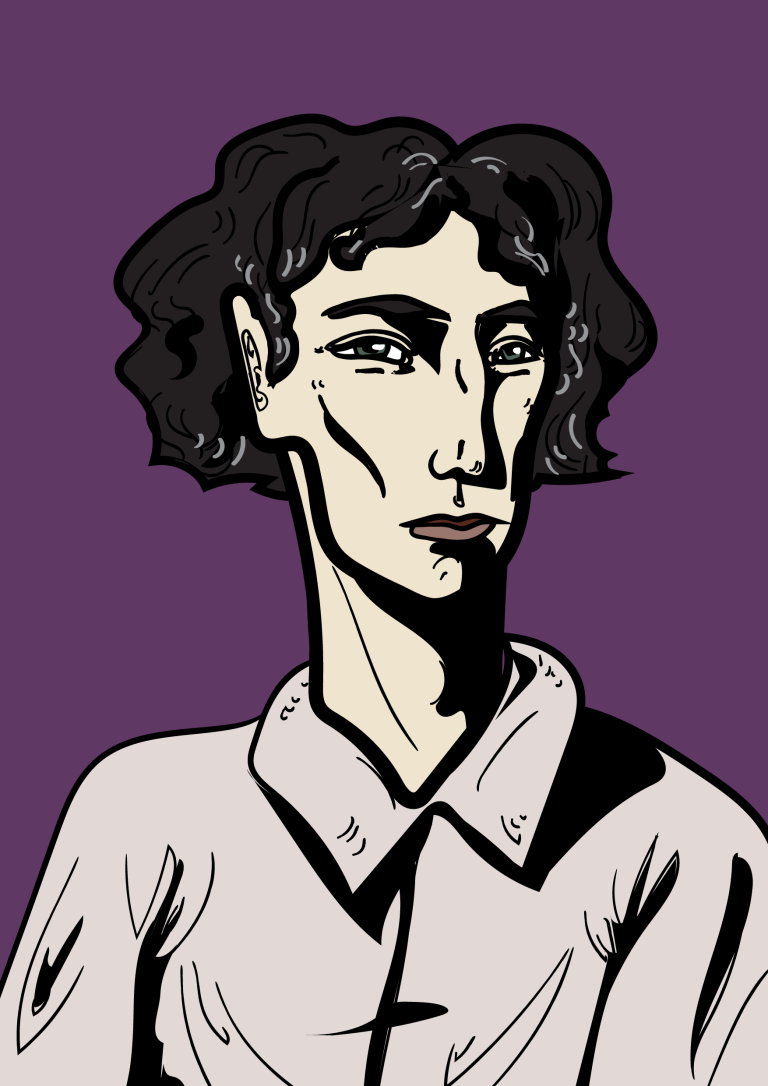
In Mykolaiv, Khrystyna lived not far from an office building. On a usual day around eight o’clock in the morning, there were already no free spaces in the parking lot, and the residents of neighbouring houses closed their windows because of the noise. However, the morning of February 24 was completely different.
It was unusually quiet and empty. Maybe I was imagining it, but I thought I really heard explosions outside the city. Neighbours were packing things into their cars, they tried to leave as quickly as possible. The TV kept on showing the same things: the president’s speech and the declaration of martial law.
Russia’s attack was expected, something was bound to happen. From several different sources I had learned about warnings from Western governments about a possible military invasion. The Russians themselves had always talked about creating a land corridor to Transnistria. In February, relatives from occupied Sevastopol cut off all contact with us. It was as if they had been ordered not to communicate with those who lived in mainland Ukraine.
My mother and I had been readying ourselves for such an event. I’d bought a box full of medicine, we had stocked up some supplies and packed things. But in the first days of the invasion, we decided to take some time and see where things would go. We wanted to be aware of the situation and not to fall into the unknown. Although, I had a thought to take my mother and rush away. We hid in our house for a while, until the shells started flying very close to us. But even then my mother, an elderly woman, refused to leave Mykolaiv. I also have a cat and 5 parrots – a small zoo. There is still no chance to get them out. If there had been an option – I would have taken them with me, I miss them.
I had been earning money by repairing phone equipment at one of the Mykolaiv markets. There were strategic targets near it. In the beginning, the boss closed the business and told us to stay at home, because the market could be hit. It did happen eventually. The boss was also busy collecting documents about his unfitness for military service. In the end he managed to do it so he went abroad with his family. In the second half of May, the store reopened, but my financial situation did not improve. Although the premises had been renovated, the air conditioner hadn’t been fixed. Without it, work in the workshop in summer felt like being boiled alive in a metal box. We needed to either make some major repairs or to look for another location.
In May, the local recruitment and social support centre started actively issuing summons to the army. It became obvious that they would come and take me by the arms to drag me to the “fairy unit”. There was no choice. What does it matter if it’s a gay man being mobilized – no one would be able to even tell. But the thing is, I have certain hormonal and behavioural changes, I am on lifelong therapy. And my idea of myself and the world around me is already formed. So I decided to try to change the documents a second time.
The first attempt was traumatic. After the transition in 2007-2008, I visited Kyiv, and the medical board there refused the examination and directed me to go through it in Mykolaiv. And in my hometown, the psychiatrist said that only the capital’s doctors could give permission to change the gender and sex in a passport and recommended contacting his Kyiv colleagues. It felt like playing tennis. They also asked stupid weird questions: why do you need it; maybe you’re just gay; maybe you just haven’t tried being gay? At that point, I realized that it was better not to talk to them at all and forget about the matter: I continued to live as I’d lived. For almost 15 years I avoided dealing with documents: for 10 years I worked unofficially, avoiding registration and receiving mail with my mother’s documents; I faced discrimination and misgendering, as well as “advice” to work in the sex industry.
The war helped me in a sense. Kyiv was busy with recruits, so local psychiatrists were given a go-ahead to work at their discretion. I am very grateful to the doctors who treated me in a professional, humane way without prejudice and helped me get the right diagnosis quickly. After passing the medical board, it was possible to collect all the necessary documents relatively quickly: a certificate of secondary education, a certificate from the registry office and a birth certificate. However, the passport offices in Mykolaiv did not work, so I decided to deal with the papers in Odesa. A shelter for trans people had just opened there, my friend was in charge. I was hiding in it all summer and part of September, torn between two cities at the same time: made my documents sometimes here sometimes there, resolved property issues, supported my sick mother, waited in long queues for humanitarian aid and looked for a job.
Now I finally moved to Odesa. Even without full rights, I will earn more here than in Mykolaiv. Why going back? The factories and plants aren’t working, there is no business, and people survive on humanitarian aid. It doesn’t really matter where to receive pennies as an internally displaced person – here or there.
For a while I thought about going abroad. I have a friend in Germany, she invited me. At first some really great aid programs were there, but now they’re over. Not everyone feels good there. The boss called from Italy and suggested coming to him. He said to take mom, take everything; everything will be there: housing, and food, and clothes. But what for? It’s the same here. Why go to an unknown country, expose yourself and your mother to danger, and also leave your animals to die?



